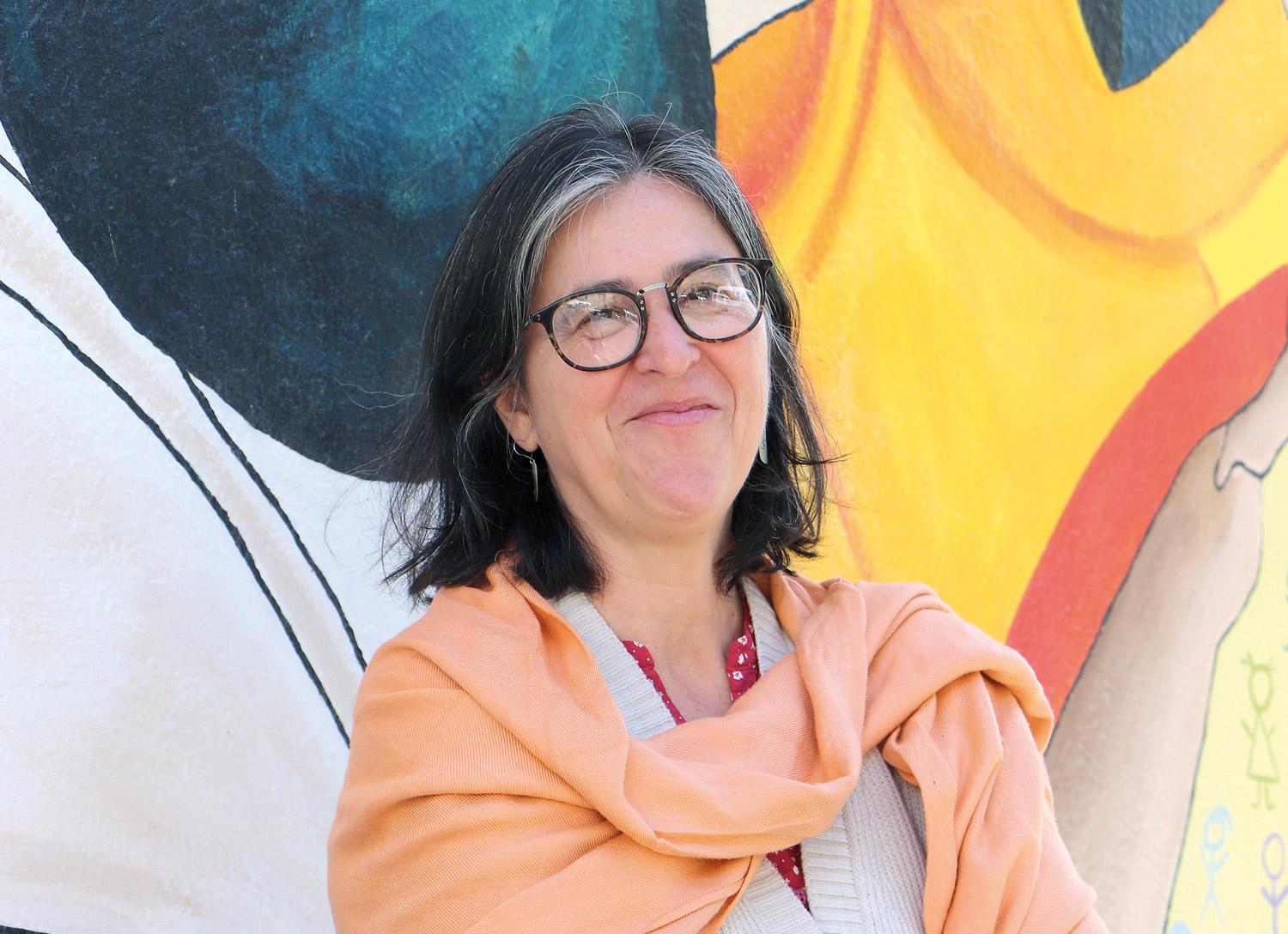
Josep Maria Esquirol says that people who cry in public spaces are uncomfortable because they remind us that "not everything is fine". It is like that self-evident sticker of that dirty sink, in such a clean city in Europe, written in a language that has no official status. It's a compassionate, angry, blurred shout between misspelled sexual references. It has touched you to meet him. And what you see, thanks to your biography, is another language. And he asks: Another language? How is that possible? Is there another town in this city? Another losing country like mine? And deep down, despite the sadness of knowing all the violence that would have to happen, the awareness of the suffocating smallness that they have to feel, it breathes at you because it informs you that there are people like yours, that that city is like yours, and you feel better.
I'm at a young French college meal. They're all grandparents' grandchildren who talked about languages that they reject and don't know. All. In another country, another day, I talk to a man who speaks a minority language like me. He has explained to me the strategies he uses to request the train card in his language and they are like mine. Like mine. Maybe someone can think. “Does the language in which cards are requested matter?” But he and I have understood it, we've connected it and we know why it matters.
We know anecdotes and stories, but we know them scattered and wireless, we know experiences, but we never relate them. But since it is so frequent, we cannot consider it merely anecdote. This is one of the many European tragedies, another (another, another): It is a sea of background of losing cultures that have been thrown into ditches in the construction of European states.
“Does the language in which cards are requested matter?”
It is essential to know that in Europe we have not all been winners, for us it is important as recognition, but also as aid. When talking about Europe, it seems to me that there is a gap in post-colonial studies: Europe is often identified as a uniform, diffuse whole. It is a widespread trend, but there are also exceptions. For example, R. Dunbar-Ortiz. An Indigenous People's History of the United States clearly explains to us that the culture of conquest of American territory did not begin when Europeans crossed the Atlantic, but came from before: “The European institutions already had a colonialist view of the world before landing in America.” Among the examples to maintain this statement, R. Dunbar-Ortiz mentions the Crusades, the expropriation of agricultural land or the expulsion of Moriscos and Jews, and "in addition, entire nations, such as Scotland, Wales, Ireland, Bohemia, Euskal Herria and Catalonia, colonized and remained under certain monarchies". And I think he is right, and it is very difficult to understand in depth the process of colonization of the world without talking about all this, and therefore without considering what the failure of some European cultures meant. Our territories were the testing ground for cultural colonialism that would extend to the rest of the planet.
"Our territories were the test ground for cultural colonialism that would extend to the rest of the planet."
This year, every fifteen days, from this nice window that has left me in ARGIA, I would like to invite you to travel through the lands of the European losers to learn more about their literatures, sorrows, fights, injustices, history and stories. My intention is clear: I want to foster mutual recognition in order to create an identity, because I believe that all those cultures, and knowing a little more about their history, can help us to be common referents that reshape our identity, as losing cultures (yes, agree), but also, and more significantly, as resilient peoples.
Her daughter learns to play the ukulele. He once acted with Somewhere over the rainbow notes. The author of this version was Israel Kamakawiwo?ole. As you see, Mr Israel’s last name is quite special to us. So special that “Cira, this is not an English surname, maybe behind... [+]












